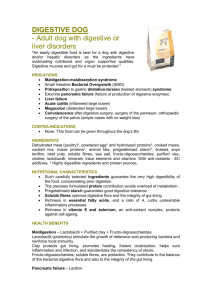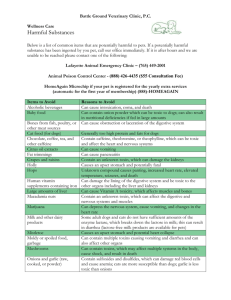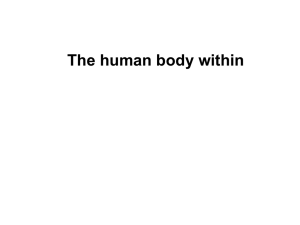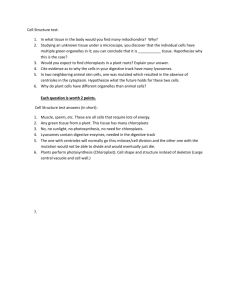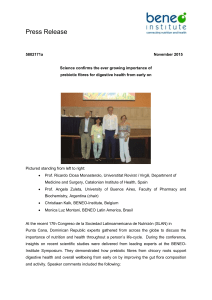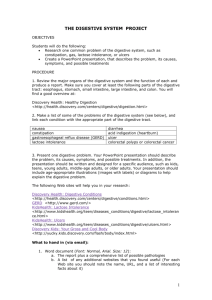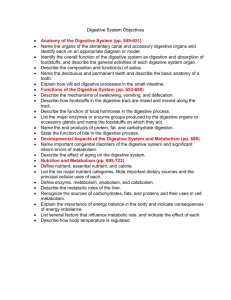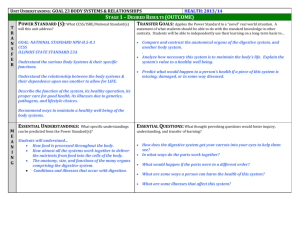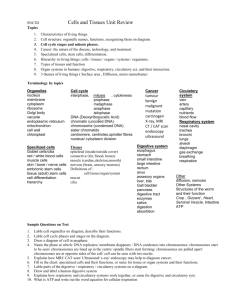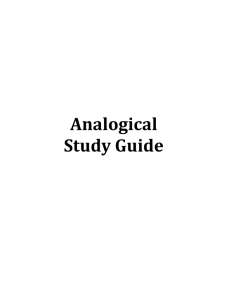Digestive cat
advertisement
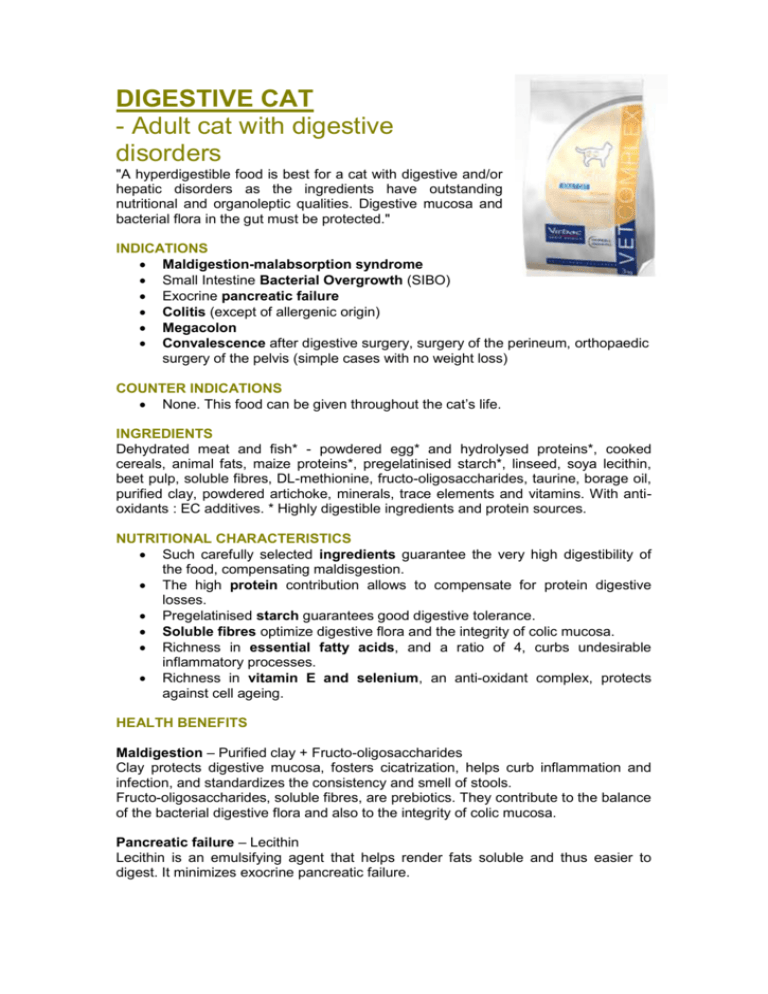
DIGESTIVE CAT - Adult cat with digestive disorders "A hyperdigestible food is best for a cat with digestive and/or hepatic disorders as the ingredients have outstanding nutritional and organoleptic qualities. Digestive mucosa and bacterial flora in the gut must be protected." INDICATIONS Maldigestion-malabsorption syndrome Small Intestine Bacterial Overgrowth (SIBO) Exocrine pancreatic failure Colitis (except of allergenic origin) Megacolon Convalescence after digestive surgery, surgery of the perineum, orthopaedic surgery of the pelvis (simple cases with no weight loss) COUNTER INDICATIONS None. This food can be given throughout the cat’s life. INGREDIENTS Dehydrated meat and fish* - powdered egg* and hydrolysed proteins*, cooked cereals, animal fats, maize proteins*, pregelatinised starch*, linseed, soya lecithin, beet pulp, soluble fibres, DL-methionine, fructo-oligosaccharides, taurine, borage oil, purified clay, powdered artichoke, minerals, trace elements and vitamins. With antioxidants : EC additives. * Highly digestible ingredients and protein sources. NUTRITIONAL CHARACTERISTICS Such carefully selected ingredients guarantee the very high digestibility of the food, compensating maldisgestion. The high protein contribution allows to compensate for protein digestive losses. Pregelatinised starch guarantees good digestive tolerance. Soluble fibres optimize digestive flora and the integrity of colic mucosa. Richness in essential fatty acids, and a ratio of 4, curbs undesirable inflammatory processes. Richness in vitamin E and selenium, an anti-oxidant complex, protects against cell ageing. HEALTH BENEFITS Maldigestion – Purified clay + Fructo-oligosaccharides Clay protects digestive mucosa, fosters cicatrization, helps curb inflammation and infection, and standardizes the consistency and smell of stools. Fructo-oligosaccharides, soluble fibres, are prebiotics. They contribute to the balance of the bacterial digestive flora and also to the integrity of colic mucosa. Pancreatic failure – Lecithin Lecithin is an emulsifying agent that helps render fats soluble and thus easier to digest. It minimizes exocrine pancreatic failure. TYPICAL ANALYSIS Moisture ........................................................................................ 8 % Crude protein .............................................................................. 35 % Crude fat .................................................................................... 20 % Minerals ........................................................................................ 5 % Crude fibre .................................................................................... 2 % Soluble fibres ............................................................................. 0.5 % Insoluble fibres ........................................................................... 4.5 % NFE ............................................................................................. 30 % Starch.......................................................................................... 20 % Calcium ...................................................................................... 0.9 % Phosphorus ............................................................................... 0.7 % Ca/P ............................................................................................... 1.3 Essential Fatty Acids .................................................................... 4 % ω6/ω3 ratio ...................................................................................... 4 Artichoke cynarine ............................................................... 200 mg/kg lecithin … ................................................................................ 0.45 % Metabolisable energy (FEDIAF formula) ......................... 379 kcal/100g Measured metabolisable energy ............................... 444 kcal/100g PCR ................................................................................... 92 g/Mcal Average digestibility ............................................................. 94.2 % Urinary pH ............................................................................. 6.2 – 6.4 Vitamin A . ........................................................................ 10000 UI/kg Vitamin D3 ........................................................................ 1000 UI/kg Vitamin E ............................................................................. 500 mg/kg digestivecat
